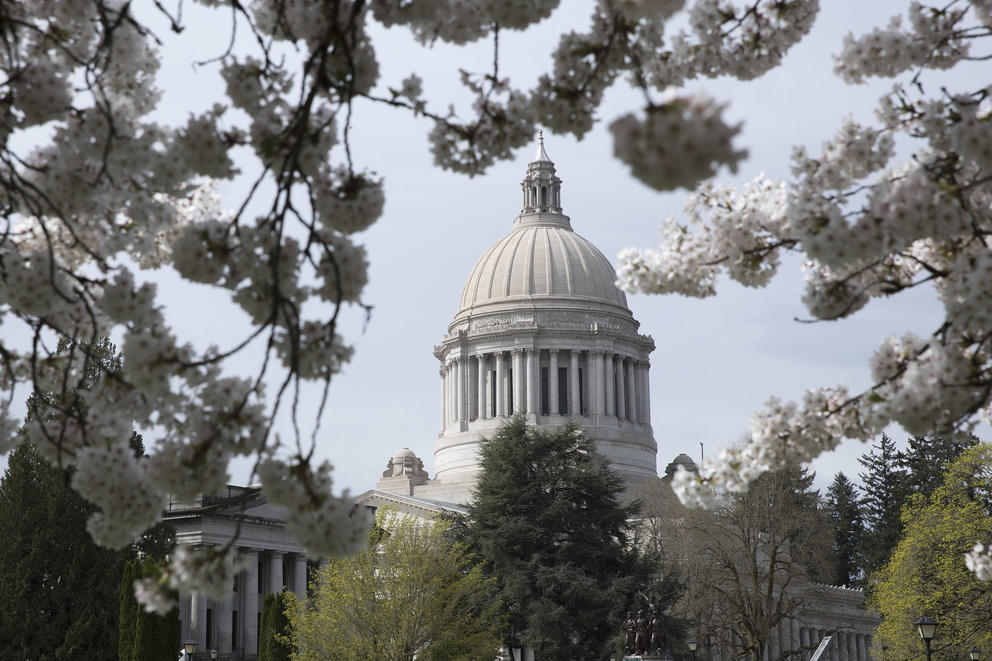But the future looks less positive. With Washington’s economy starting to soften, the state is expected to bring in $483 million less in existing taxes for the 2023-2025 budget cycle, which begins July 1.
The forecast for the 2025-27 budget cycle has also been revised down, with $541 million less in taxes than state officials had been anticipating.
In Monday’s meeting of the council, Executive Director Steve Lerch pointed to softening numbers for personal income, fewer building permits, and layoffs in tech industries, as well as the recent failures of two banks, as concerns for longer-term state revenues.
“Collections have continued to come in pretty well” so far, Lerch pointed out, citing January tax data. But “We do expect that to slow down.”
Meanwhile, “Small businesses are definitely concerned about future business conditions,” he added.
One unknown involves the collapse of Silicon Valley Bank and Signature Bank earlier this month.
“It’s still unclear what the ultimate impact of those two banks failing will be,” Lerch said.
Monday’s numbers are the last key piece of information the Legislature’s Democratic majorities need as they prepare to release their state budget proposals within the next week.
Washington’s state operating budget is the spending plan that doles out dollars to the state’s schools, parks, prisons, public lands and social services, such as the foster care and mental health programs.
Senate Democrats are scheduled to release the proposed two-year budget plan on Thursday, according to a spokesperson for the caucus. House Democrats could release their proposed spending blueprint as early as next week.
Gov. Jay Inslee in December laid out his proposed plan, a $70 billion two-year operating budget that doesn’t raise any new taxes but depends on increasing existing revenues to boost state services, and supply, among other things, enough money to give raises to state employees.
Inslee’s spending plan also focused on funding K-12 education; recruiting workers to staff jobs on the state ferries and other positions amid a labor shortage; and finding ways to help the mental health system and reduce homelessness.
Inslee’s proposal also includes a referendum he’s asking the Legislature to approve so it can go before state voters this fall. That measure seeks to raise $4 billion above the state’s official debt limit in the coming years by issuing bonds to build affordable housing, permanent supportive housing and shelter beds across the state.
That idea is one of a broad slate of this year’s proposed solutions to Washington’s housing and affordability crisis amid a longstanding and increasing shortfall of housing units across the state.
A coalition of Democratic and Republican lawmakers – aided by progressive labor unions and a variety of businesses and commerce groups, as well as advocates for racial justice, climate change and the preservation of agricultural lands – are advancing proposals to increase housing density, cut red tape and permitting costs, and boost state funding for some types of needed housing.
Some of that funding could also come through the budgeting process in this year’s legislative session, which is scheduled to wrap up in late April.
In a statement Monday, Sen. Christine Rolfes, D-Bainbridge Island, noted the potential for an economic slowdown, but said budget writers remain in “a strong position” this year.
“We are focused on supporting our students and teachers, addressing the housing crisis, strengthening our behavioral health system, improving public safety, and taking historic steps to protect our environment,” Rolfes, the chief Democratic Senate budget writer, said in prepared remarks.
“Washington is the only state in the nation with a requirement to balance its budget over four years, and that strong fiscal governance has made our state more resilient as we face today’s economic uncertainty and stubborn inflationary pressure,” she added.
Get the latest in election news
In the weeks leading up to each election (and occasionally during the legislative session), Crosscut's Election newsletter will provide you with everything you need to know about races, candidates and policy in WA state.



